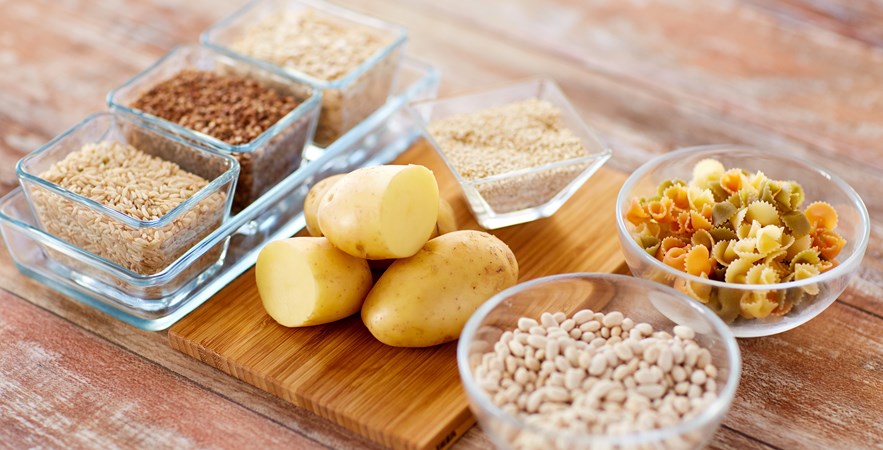SYMMETRIA®
BLOG

Carbs that get a bad rap
Carbohydrates have received a bad rap over the years, as foods that we should avoid, as they make us gain weight. Let's see what really happens to the body when we consume carbohydrates.
Carbohydrates are the preferred source of energy for the body and contain a moderate amount of calories compared to fats. There is a clear difference between simple sugars and complex carbohydrates. Simple carbohydrates, such as sugar, are of low nutritional value and should be avoided. Complex carbohydrates, on the other hand, are beneficial to the body and should be part of a healthy diet. The problem is not so much what we are eating, but more how much we are eating.
Based on human physiology, the brain uses glucose as a fuel. The body is capable of producing glucose from body fat, and it needs to consume carbohydrates to improve short-term cognitive function. In addition to this, eating carbohydrates stimulates the secretion of serotonin, a brain chemical necessary for elevating our mood, especially important in people who are trying to lose weight, more so in cases where it is a long-term process. Surely the consumption of complex carbohydrates (fruits, vegetables, unprocessed cereals, etc.) will facilitate this effort. After all, it's very difficult to maintain a low-carbohydrate diet in the long run, mainly because of the body's "preference" for them as fuel.
Brown sugar - like white - is crystalline, to which molasses have been added and also has a low mineral content. However, the differences between the two are insignificant, and there is no cause for opting for brown sugar over white sugar.
The ideal diet combines low fat foods and carbohydrates, ensuring adequate consumption of fruits and vegetables. When consumed in reasonable quantities, they provide the energy needed for daily activity.
Low-carbohydrate diets do not provide sufficient energy needed for daily activities, resulting in the body burning the glycogen stored in muscle first and eventually fat. When glycogen is burned for energy use, the impressive weight loss is due to the release and elimination of excess water.
If we take a purely calorimetric approach, the foods that make us gain weight are those that are high in calories regardless of their source. In addition, metabolism plays an important role in how well the body burns what it eats. Reducing carbohydrate intake lowers blood sugar levels, depletes glycogen stores, and contributes to reduced body performance. You need fruits, cereals, pasta and bread in reasonable quantities in your diet. Foods high in fibre (e.g. vegetables, leafy greens, etc.) that are predominantly carbohydrates, are for some reason low in calories and can be consumed freely.
Natural high-energy sources include dried fruits, apples, grapes, raisins, and nuts, the latter of which also provide fiber, protein and minerals.
Sugar-free sodas are not healthy despite being low in calories, as they contain caffeine and phosphorus in large quantities. A small amount of caffeine such as that contained in a cup of tea is more beneficial as a stimulant for the body. Excess caffeine, however, leads to dehydration and loss of various vital components through the urine, such as vitamins and calcium.
Do you like our content?
SUBSCRIBE
to keep up with SYMMETRIA's® latest news, partnerships, offers, new protocols and products
This site is protected by reCAPTCHA and the Google Privacy Policy and Terms of Service apply.
